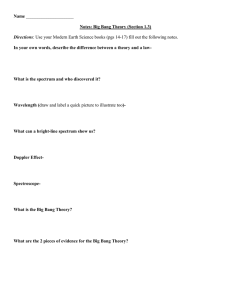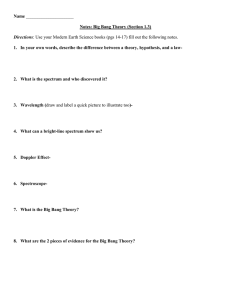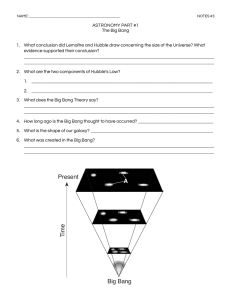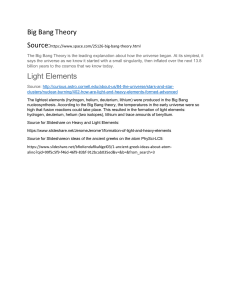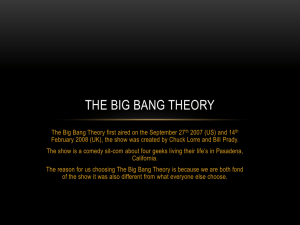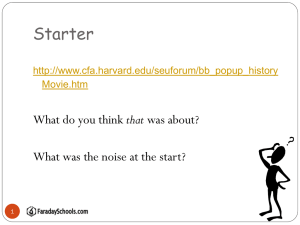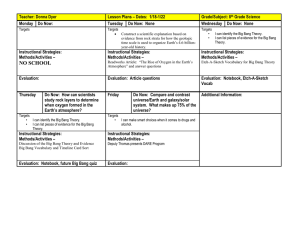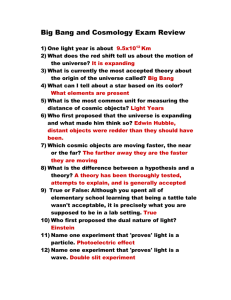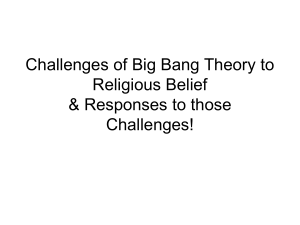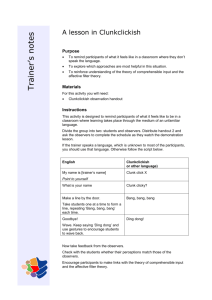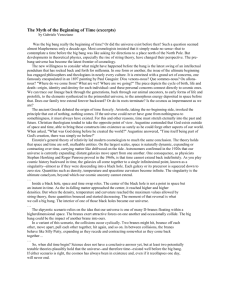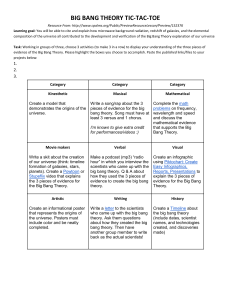Introduction
advertisement
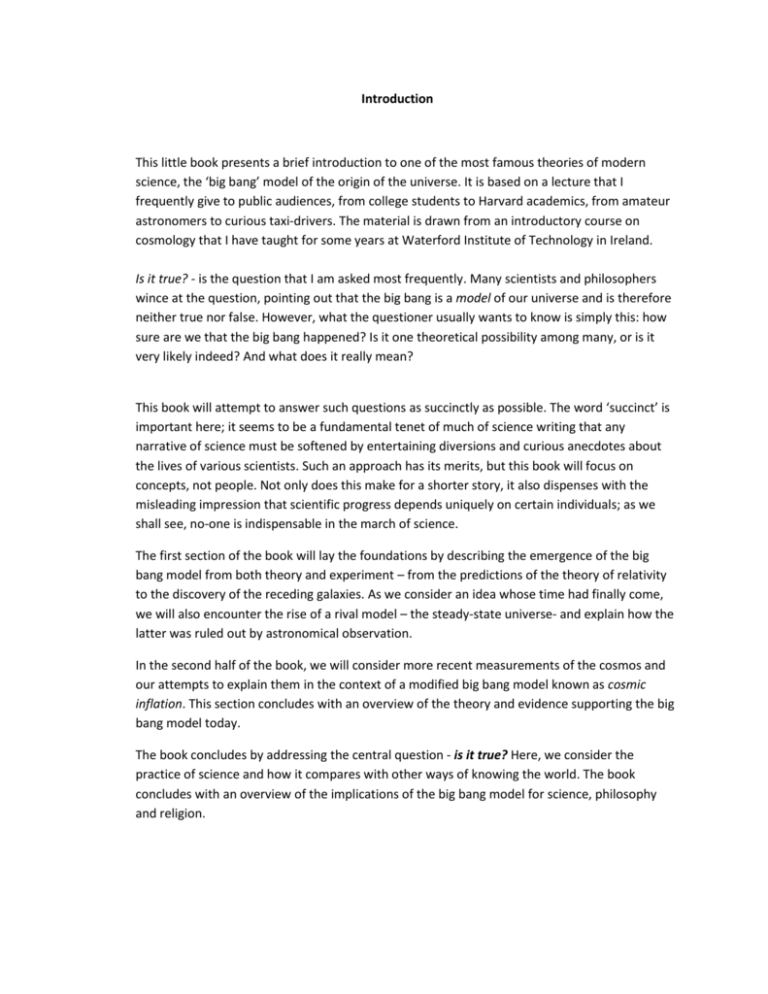
Introduction This little book presents a brief introduction to one of the most famous theories of modern science, the ‘big bang’ model of the origin of the universe. It is based on a lecture that I frequently give to public audiences, from college students to Harvard academics, from amateur astronomers to curious taxi-drivers. The material is drawn from an introductory course on cosmology that I have taught for some years at Waterford Institute of Technology in Ireland. Is it true? - is the question that I am asked most frequently. Many scientists and philosophers wince at the question, pointing out that the big bang is a model of our universe and is therefore neither true nor false. However, what the questioner usually wants to know is simply this: how sure are we that the big bang happened? Is it one theoretical possibility among many, or is it very likely indeed? And what does it really mean? This book will attempt to answer such questions as succinctly as possible. The word ‘succinct’ is important here; it seems to be a fundamental tenet of much of science writing that any narrative of science must be softened by entertaining diversions and curious anecdotes about the lives of various scientists. Such an approach has its merits, but this book will focus on concepts, not people. Not only does this make for a shorter story, it also dispenses with the misleading impression that scientific progress depends uniquely on certain individuals; as we shall see, no-one is indispensable in the march of science. The first section of the book will lay the foundations by describing the emergence of the big bang model from both theory and experiment – from the predictions of the theory of relativity to the discovery of the receding galaxies. As we consider an idea whose time had finally come, we will also encounter the rise of a rival model – the steady-state universe- and explain how the latter was ruled out by astronomical observation. In the second half of the book, we will consider more recent measurements of the cosmos and our attempts to explain them in the context of a modified big bang model known as cosmic inflation. This section concludes with an overview of the theory and evidence supporting the big bang model today. The book concludes by addressing the central question - is it true? Here, we consider the practice of science and how it compares with other ways of knowing the world. The book concludes with an overview of the implications of the big bang model for science, philosophy and religion.
